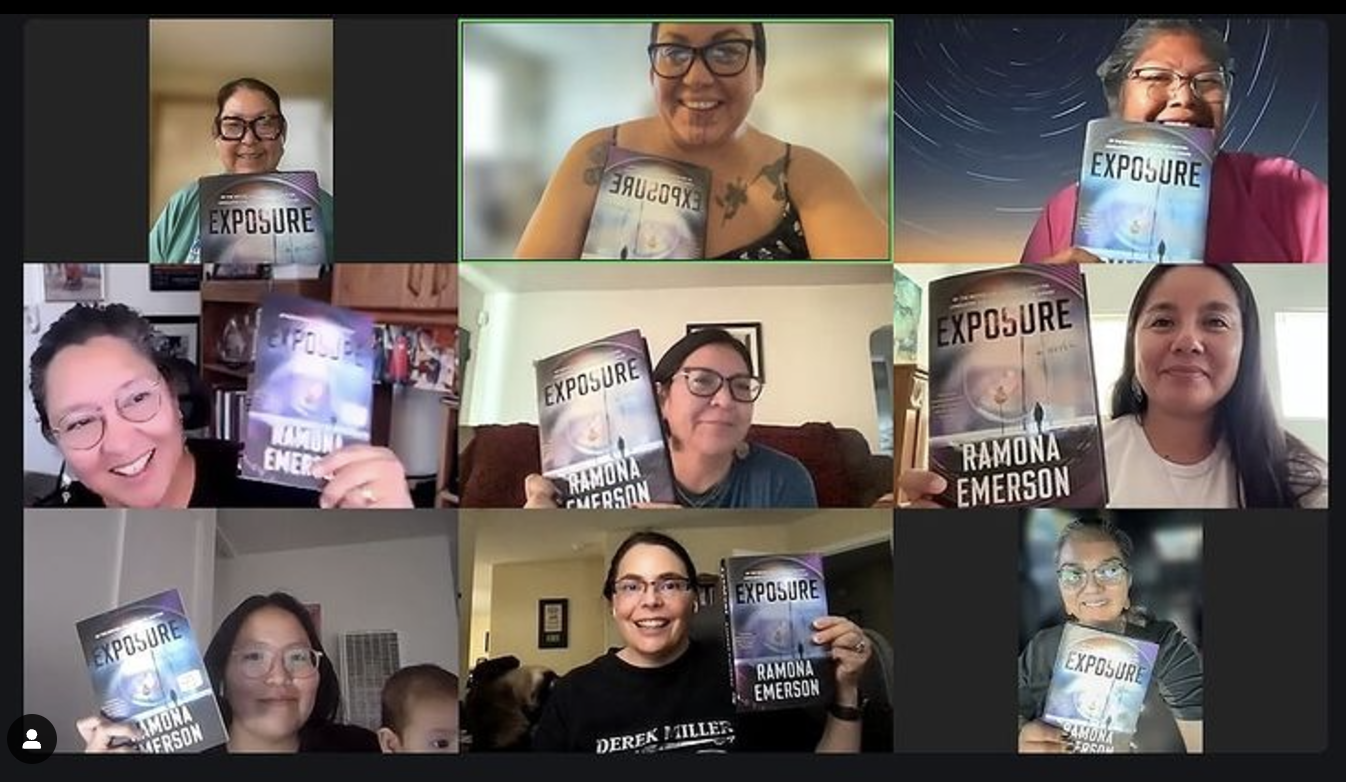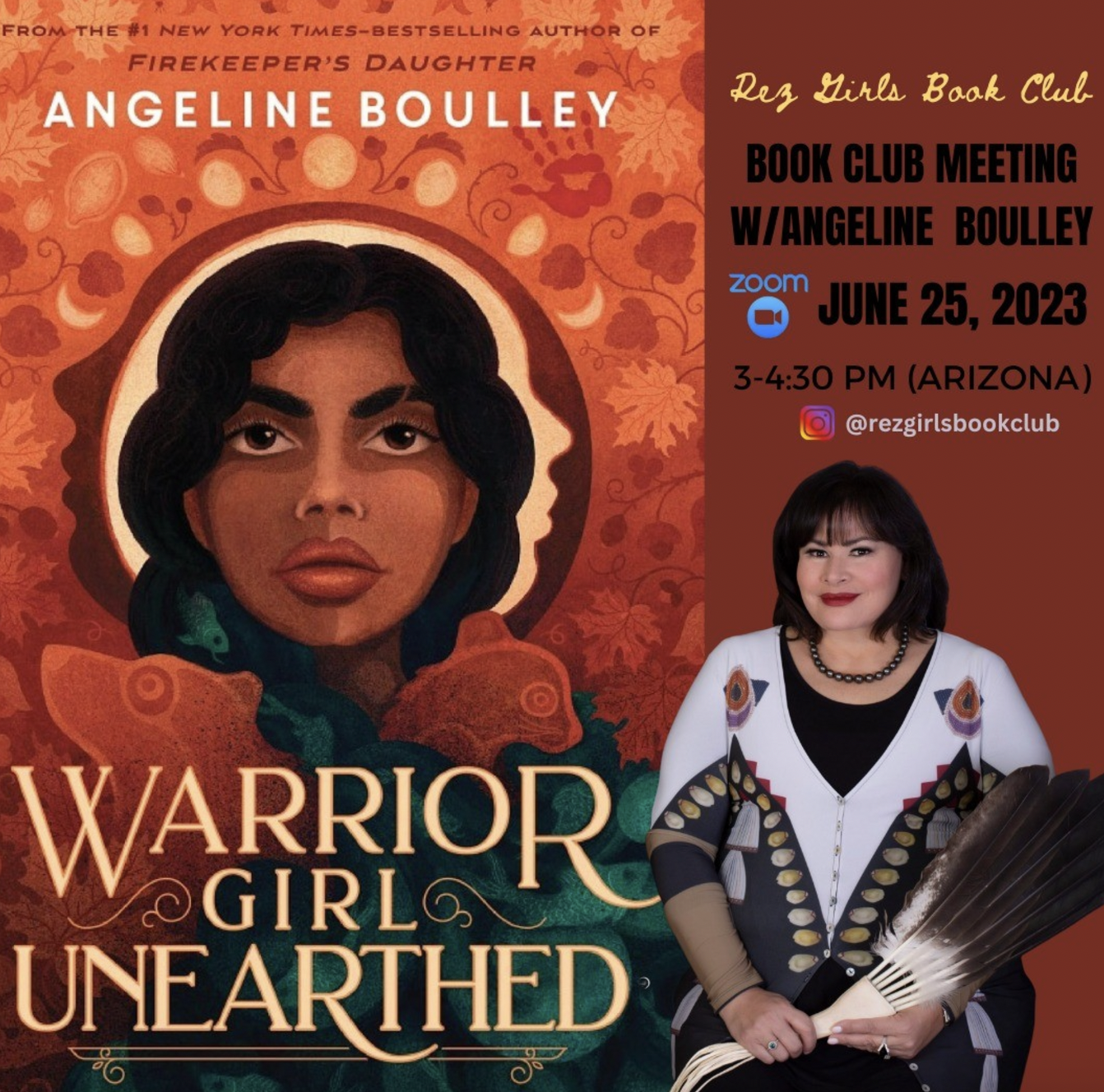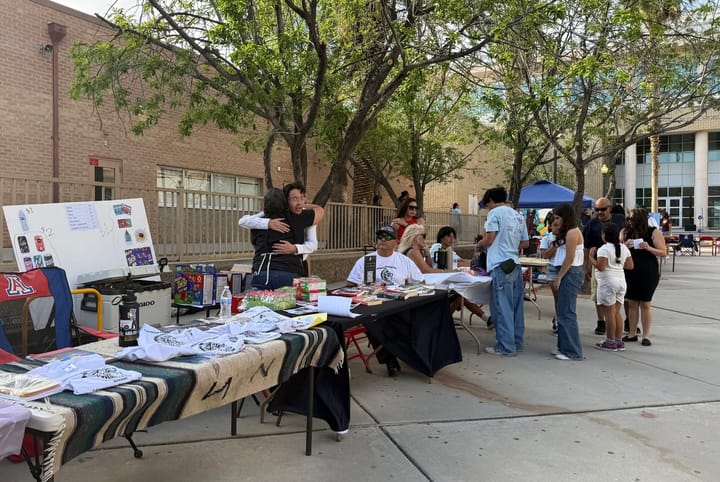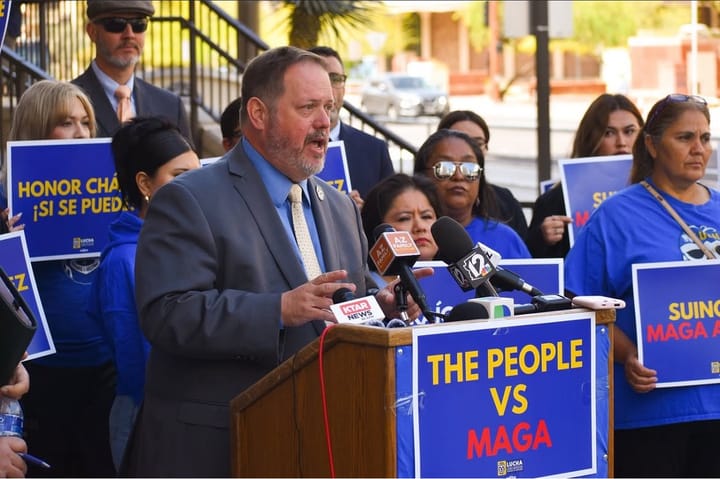Book club that highlights Indigenous authors to hold final meeting
Rez Babes Book Club started as a group of about 20 people, but quickly grew into a monthly virtual gathering of up to 150 people from around the world.

It's Giving Tuesday and we're fundraising to help grow our newsroom, expand our coverage and increase our Spanish-language reporting. Please consider making a tax-deductible donation so we can continue this valuable work.
Donate to Tucson SpotlightA book club that showcases Native and Indigenous authors is holding its final meeting this month, after three years and dozens of books.
Rez Babes Book Club was founded by April Ignacio during the pandemic, after she received a donation of 25 books from the Arizona State University Virginia Piper Creative Writing Center.
When no one else wanted the books, Ignacio offered to take them, hoping to find a way to share them with others.
At the time, many people were stuck at home, so Ignacio began distributing the books to her friends.
What started as a group of about 20 people coming together to discuss Louise Erdrich’s The Round House quickly grew, beyond Ignacio’s expectations, into a monthly virtual gathering of up to 150 people from around the world.
When ASU’s Piper Center shut down, Ignacio was able to secure some funding and began seeking grants to expand the book club’s reach.
One day, she was struck with an idea: Why not just reach out to authors directly?
“I thought maybe I should try to reach out to these artists and see if they would be interested, because everyone was home and it was a lot easier to navigate online with artists who were not doing tours,” Ignacio told Tucson Spotlight. “These artists all responded and made themselves accessible to our book club.”

Angeline Boulley, author of Firekeeper’s Daughter, which became a New York Times bestseller and won the Edgar Allan Poe Award for Best Young Adult Novel in 2022, was one of the authors who spoke with the club, joining them to discuss her latest book, Warrior Girl Unearthed.
“There are a lot of artists that bring something special when they unpack their book with us,” Ignacio said. “We’re able to do the deep dives with them, and because we’re Native and they’re Native, it feels natural for both us and for them to be able to talk about this body of art that they’ve worked on.”
Unlike some clubs, Rez Babes’ discussions don’t include critiques of the books, with Ignacio saying that the final product is the author’s own work of art. The idea is simply to engage and learn.
“Having that exposure to the artists was a lot of fun, and then it just kept going,” she said. “It was making sure that I could hustle on the side — creating flyers, making contact with these artists and trying to provide exposure for people in our community who don’t have access.”
She said that on the Tohono Oʼodham Nation, where she lives, there is very limited access to books or news. The community no longer has a public library or bookstore, and is considered a “news desert.”
“The Arizona Daily Star, which is a major publication, doesn’t go past Three Points. So if people are reading, they’re reading online,” she said. “But normally there are paywalls, so people aren’t getting their news unless it’s through local TV.”
Despite these challenges, the book club continued to grow, drawing members from around the world, including Canada, New Zealand and Australia. The majority of the members are women, but after a handful of men signed on, the group changed its name from Rez Girls to Rez Babes to make sure everyone felt included.

Twenty-two of the members lack access to the books, so Ignacio provides them with copies.
“The idea was always to try to provide these books to community members,” she said. “It didn’t matter to me if they showed up to the book club, because I knew the art was getting these books to remote areas.”
Unfortunately, as the pandemic subsided, so did many of the organizations that helped support the book club in its early days. As a result, Ignacio has been funding the books on her own.
“It was one of those things you didn’t want them to worry about,” she said. “You didn’t want potential readers or people who are excited about reading to worry about where they’re going to get a book.”
Over the years, the club has held writing workshops, bringing in authors to teach members tricks of the trade.
“It’s magic. That’s what I tell people, and it’s really special,” Ignacio said of the experience. “The main thing is we want to see more writers, and then we encourage (our) members to begin writing and to tell our own stories.”
Despite pleas to continue the book club, Ignacio is finally calling it quits, citing a lack of funding and time. She's open to the idea of it living on, but says someone else will need to step up as leader and manage the responsibility of securing their own books.
“I definitely will continue to read, but there’s a lot of back end work that has to be done that I’m just no longer at the capacity to do,” she said.
Isabela Gamez is a University of Arizona alum and Tucson Spotlight reporter. Contact her at gamezi@arizona.edu.
Tucson Spotlight is a community-based newsroom that provides paid opportunities for students and rising journalists in Southern Arizona. Please support our work with a paid subscription.




